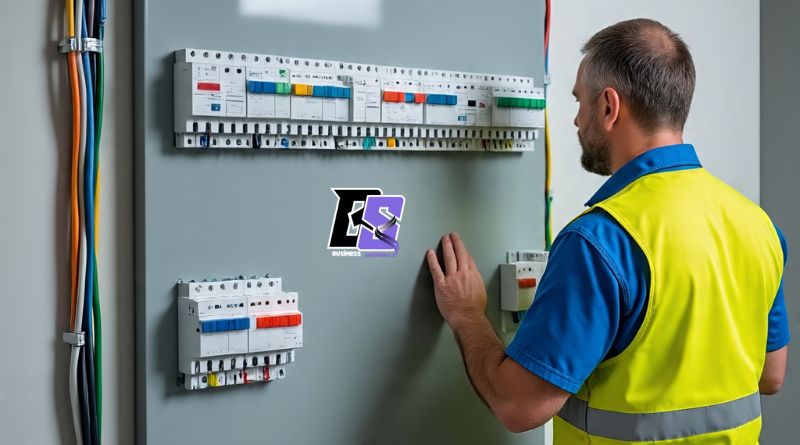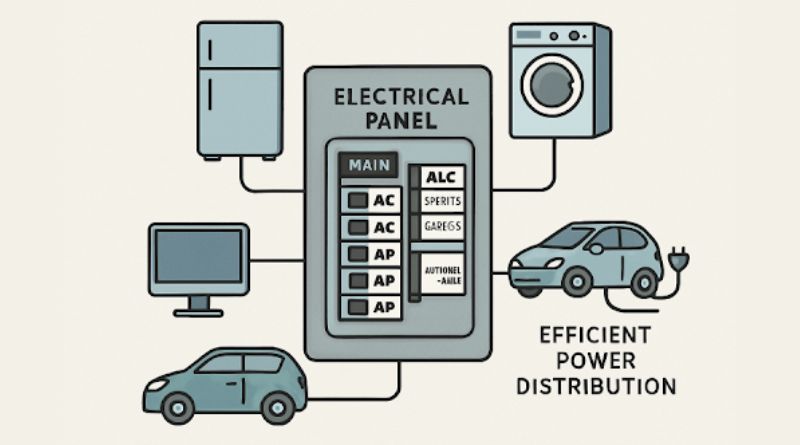How Electric Panel Upgrades Can Improve Your Home’s Electrical System
Keeping your home’s electrical system up to date is both a safety measure and a key to modern convenience. Homes built decades ago were never meant to handle the rapidly increasing number of devices, high-wattage appliances, and electric vehicles common today. For homeowners seeking enhanced power distribution, security, and peace of mind, Raleigh, NC electric panel upgrades can make a significant difference.
Upgrading your electric panel isn’t just about meeting the growing appetite for power. It’s about future-proofing your home, lowering the risk of electrical fires, and ensuring that all your devices run smoothly. Whether you’re planning to renovate, add new appliances, or simply want to safeguard your loved ones, a panel upgrade can be one of the smartest investments you make for your home’s overall function and safety.
Better Power Distribution For Modern Homes
Many older electric panels struggle to keep pace with the demands of contemporary living. With the proliferation of smart gadgets, computers, home theaters, and kitchen appliances, it’s common for outdated panels to become overloaded. According to the U.S. Department of Energy, efficient electrical systems are essential for minimizing outages and maintaining stable power. By upgrading your electric panel, you enable your home to distribute power more efficiently across all circuits, resulting in fewer interruptions such as flickering lights or tripped breakers.
Safety Benefits: Protecting Your Home And Family
An old or undersized electrical panel can be a significant fire hazard. The National Fire Protection Association notes that electrical failures and malfunctions are a leading cause of house fires nationwide. Modern panels offer advanced safety features, including improved circuit breakers and the ability to support lifesaving devices such as smoke detectors and carbon monoxide alarms. By prioritizing safety, a new panel helps safeguard your home and everyone in it.
Supporting New Technology And Appliances
Today’s households depend on an ever-growing range of electronics and high-wattage appliances—from smart thermostats and home offices to electric stoves and vehicle charging stations. Panels installed before the 1980s often lack the capacity and circuit space to handle these additions without frequent overloads. Upgrading your panel gives you the flexibility to add new gadgets and appliances without fear of tripping breakers or damaging sensitive electronics.
Recognizing When Your Panel Needs An Upgrade
Certain signs often indicate that your electrical panel is struggling to keep up. Standard warning signals include:
- Frequent circuit breaker trips, especially during high usage times
- Lights dimming or flickering when appliances turn on
- Warm or discolored outlets and switch plates
- The presence of an old fuse box instead of modern circuit breakers
- Planned expansions like home additions or new major appliances
If you notice any of these issues, it’s wise to bring in a professional who can evaluate your current electrical system and recommend the right upgrade path.
Energy Efficiency And Lower Utility Bills
Many homes lose money on their electric bills due to inefficient, outdated electrical panels. Modern panels are designed to optimize power management, minimizing waste and promoting the use of energy-saving devices, such as smart thermostats and efficient appliances. Over time, these upgrades can noticeably lower utility bills and lessen your environmental footprint, making your household both more economical and eco-friendly.
Step-By-Step: What Happens During An Electric Panel Upgrade?
Understanding the upgrade process helps homeowners prepare for what to expect. Here’s a typical step-by-step breakdown:
- A licensed electrician assesses your existing panel and determines your electrical needs based on your home’s size and appliance load.
- Power to the home is carefully switched off at the main supply to ensure everyone’s safety.
- The old panel is disconnected and safely removed from its location.
- The upgraded panel—with increased capacity and additional breaker slots—is installed and connected to the home’s wiring.
- The system undergoes a series of safety checks to confirm that all circuits are functioning as intended.
- The electrician restores power and ensures the upgraded panel is running reliably and in compliance with local code standards.
This process should always be handled by a qualified electrician who is familiar with pertinent codes and safety practices.
Preventing Electrical Fires And Hazards
Electrical fires often originate from unseen problems, such as overloaded circuits or failing panels. Upgrading to a modern electrical panel reduces these risks by shifting to more reliable circuit breakers and safety devices, such as arc-fault circuit interrupters (AFCIs) and ground-fault circuit interrupters (GFCIs). These devices quickly detect abnormal electrical currents, shutting down a circuit before heat or sparks can ignite a fire. Investing in these safety features means taking a proactive stance against one of the leading causes of residential fires.
Choosing The Right Professional For Your Upgrade
Selecting the right electrician ensures your panel upgrade delivers lasting value and peace of mind. Look for a licensed, insured professional with strong reviews, relevant experience, and up-to-date knowledge of local safety codes. Ask about guarantees, references, and whether they use trusted manufacturers. A skilled installer ensures your new panel not only meets today’s demands but remains safe and efficient for years to come.
Conclusion
Keeping your home’s electrical system up to date is essential for safety, efficiency, and modern convenience. From preventing overloads and electrical fires to supporting new technology and high-wattage appliances, upgrading your electric panel ensures your home can meet today’s demands and adapt to future needs. Beyond safety, modern panels improve power distribution, reduce energy waste, and can even lower utility bills, making them a wise investment for both comfort and cost savings. By recognizing the signs of an outdated panel and hiring a qualified professional for upgrades, homeowners can enjoy peace of mind, reliable electricity, and a home ready for tomorrow’s technology.





